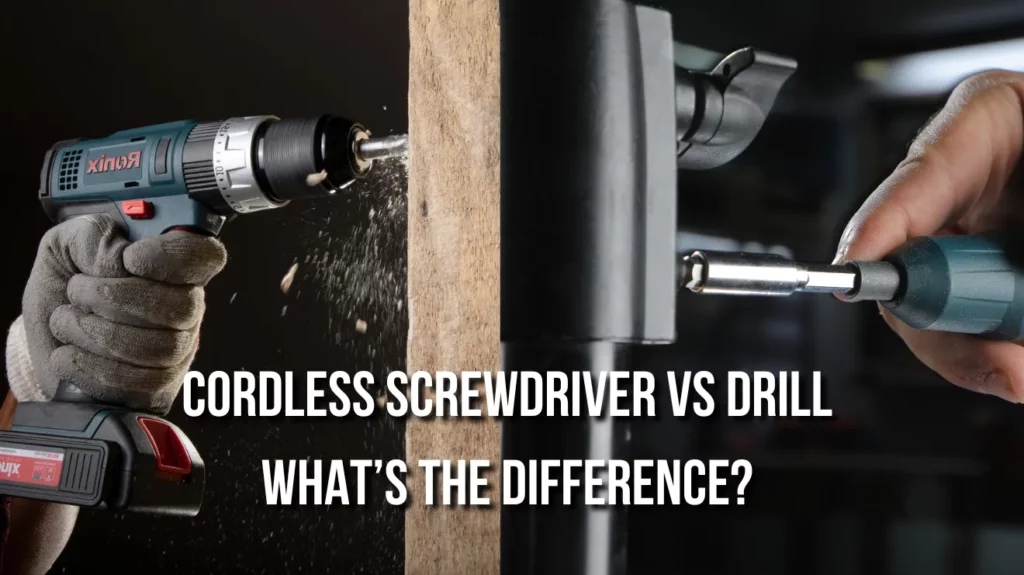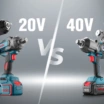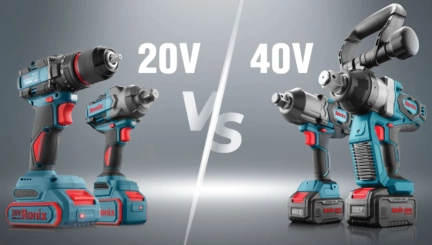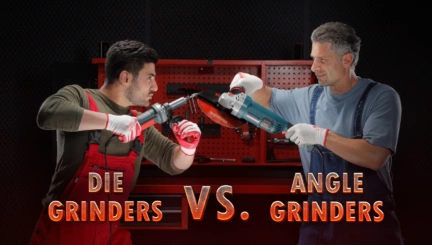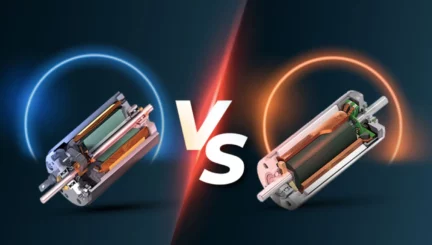- 11min
- 19419
- 0
Deciding between an electric screwdriver vs a drill can be confusing with all the power tools out there. Even though they may seem alike, these two tools are quite different, making the choice a bit tricky. When it comes to doing things around the house, picking the right tool is not just about saving money but also about making your life easier.
A cordless screwdriver is like a pro at complicated tasks, perfect for putting together furniture or tightening small screws precisely. Meanwhile, a drill is a jack-of-all-trades, ready to handle a bunch of jobs. It’s powerful and versatile, making it great for bigger projects like drilling into different materials or taking on renovations.
Stand out with premium products from your trusted electric screwdriver supplier.
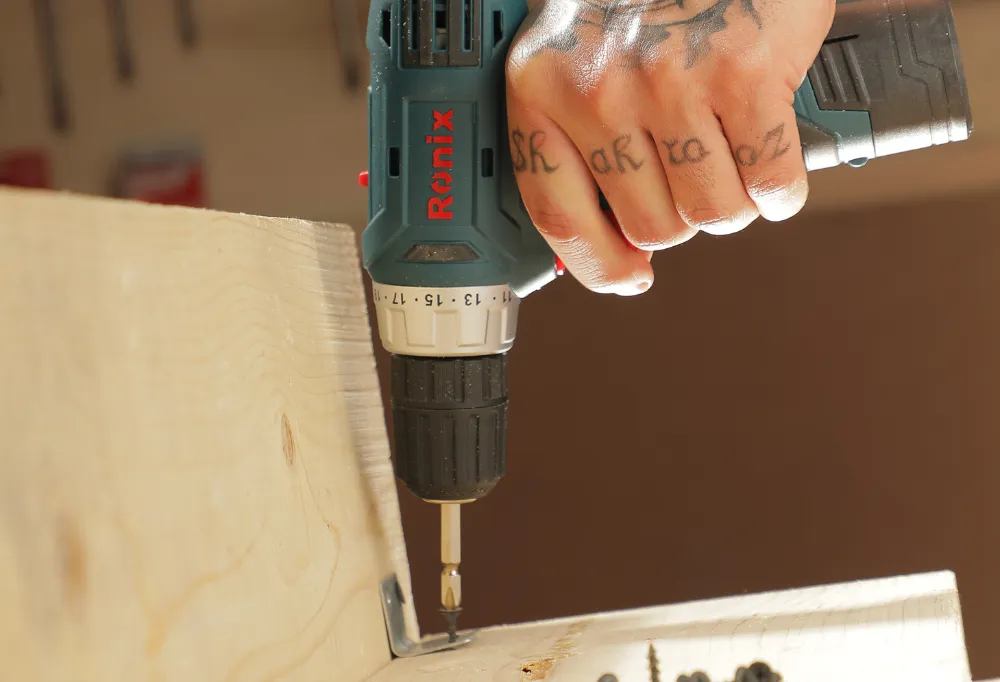
To figure out which one’s right for you, think about what kind of jobs you’re planning to tackle. If you need something for small, detailed work, the cordless screwdriver is your friend. But if you’ve got a mix of tasks, especially bigger ones, the drill might be the better choice. Understanding what you need will help you pick the tool that fits your projects, making your DIY adventures smoother and more enjoyable.
Related Articles: Best Electric Screwdriver
Cordless Screwdriver Vs Drill, Where Does It Begin?
When comparing an electric drill screwdriver, the main differences lie in the size of the motor and the battery voltage. Cordless drills stand out with their bigger, stronger motors, making them ideal for tougher tasks like drilling holes or mixing paint. They need a higher battery voltage, typically ranging from 12V to 24V, to handle these more demanding jobs. On the flip side, electric screwdrivers are designed for lighter tasks, featuring smaller motors and batteries in the 4V to 10V range. This distinction in motor size and battery power determines the type of jobs each tool is best suited for in your toolbox.
Our suggestion for Cordless screwdriver: Ronix 8671 20V Brushless cordless screwdriver 230N m
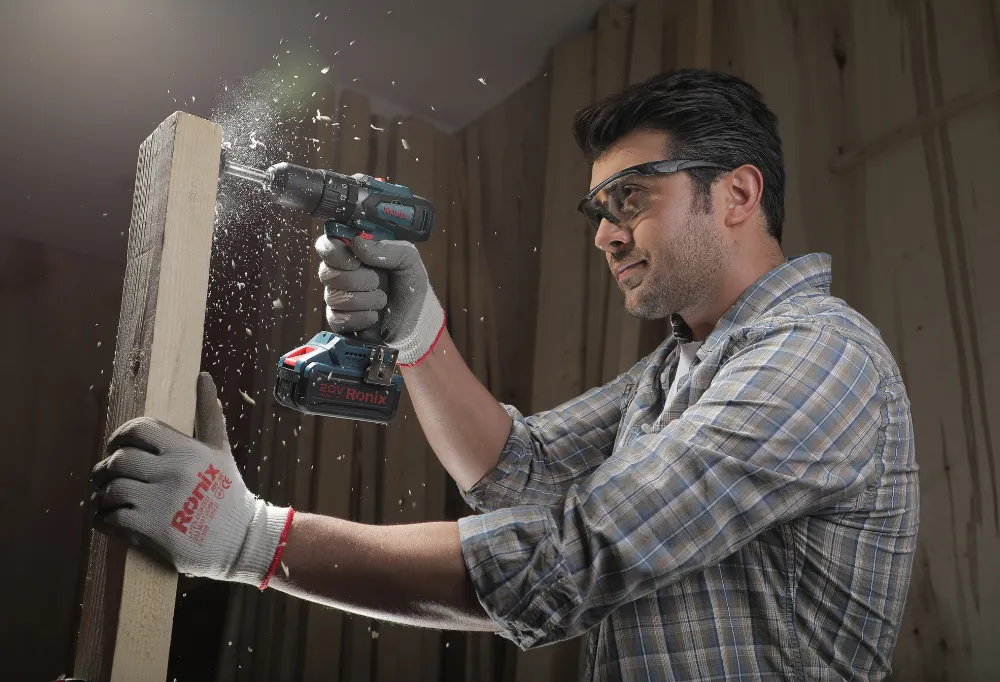
Can an Electric Screwdriver Be Used as a Drill or Vice Versa?
Certain electric screwdrivers, often called “drill drivers,” are versatile enough to handle both screwdriving and drilling tasks. They come with adjustable settings to switch between functions. However, keep in mind that while they offer convenience, they may not match the power of dedicated drills for heavy-duty tasks. For optimal performance, it’s best to choose the right tool for the job. Let’s see what makes them different.
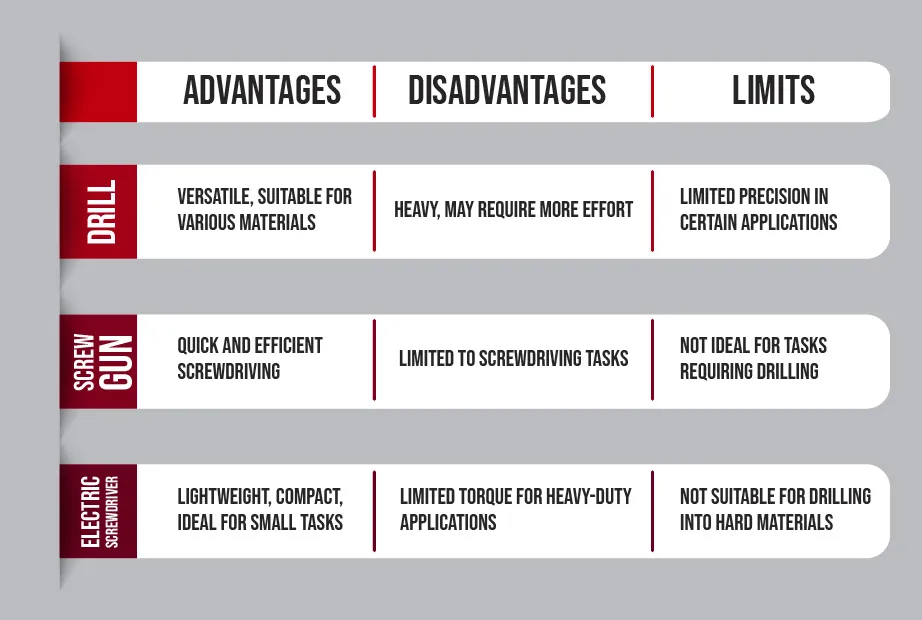
5 Major Differences
Drill Bits and Chucks vs. Socket: The primary difference between a Cordless Screwdriver and a Drill revolves around the chuck and bits. A drill has a versatile chuck that opens and closes around a variety of bits, primarily used for tasks like drilling holes. The selection of available drill bits allows for diverse applications, letting you do different jobs with ease.
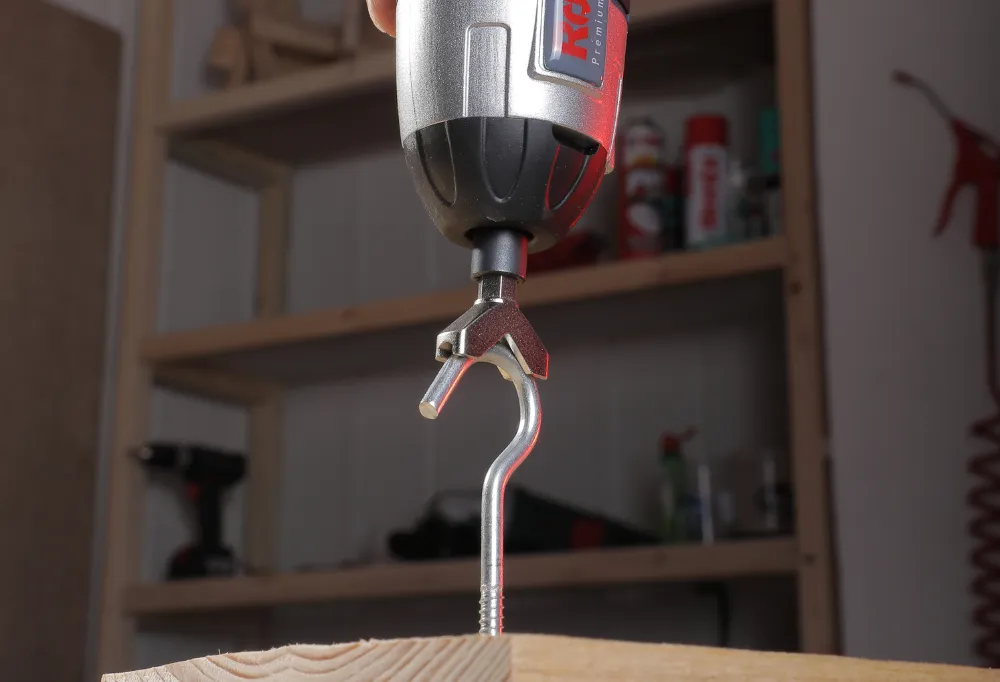
In contrast, a cordless screwdriver often comes equipped with a specialized socket designed for driving screws. This streamlined approach caters specifically to screw-related tasks, offering efficiency and precision. The socket, tailored to fit various screw sizes, eliminates the need for interchangeable bits, simplifying the tool and making it user-friendly, especially for those focused on screw-driving applications.
Related Articles: Best Screwdriver Set
🔸 Versatility:
In the debate of Cordless Screwdriver vs. Drill, versatility takes the spotlight. The drill emerges as the more versatile player, doubling as a screwdriver and handling a broader range of tasks. While a screwdriver excels at its intended purpose, it remains somewhat one-dimensional, offering enhanced functionality compared to a manual screwdriver but lacking the versatility of a drill.
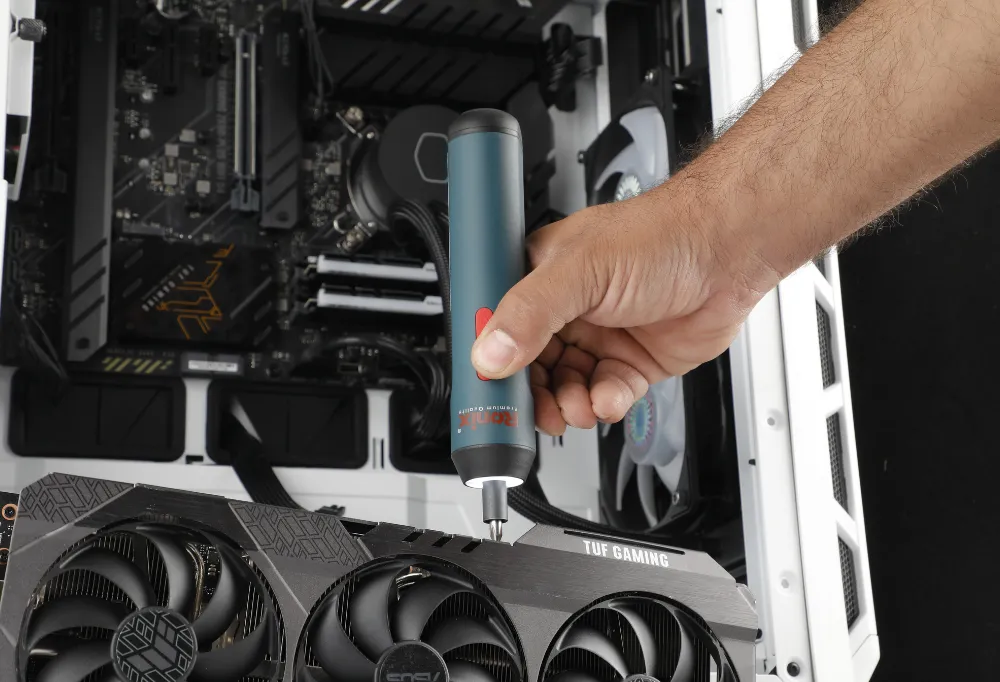
🔸 Size and Portability:
Size becomes a key factor influencing a tool’s utility. Unlike the stationary and sizable drill press, cordless drills and hammer drills are handheld and portable, enabling usage in various locations without the restriction of a power outlet. However, their heaviness may pose challenges in tight spaces. Cordless screwdrivers, resembling medium-sized screwdrivers, shine in terms of portability and ease of operation, particularly in confined areas.
🔸 Torque and Power:
While neither the cordless screwdriver nor the drill matches the power of a drill press, both pack sufficient punch in terms of torque for most household tasks. Sporting 18 or 20-volt batteries, these tools prove adept at cutting through various materials, making them reliable companions for a range of DIY projects.
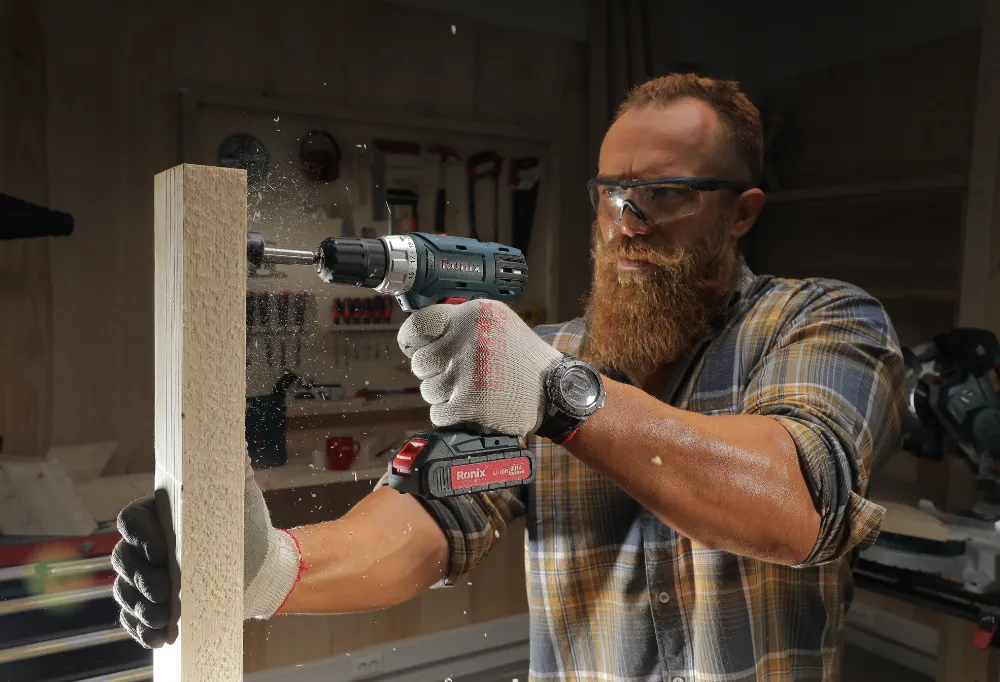
Related Articles: How Does a Drill Chuck Work?
🔸 The Cost:
Affordability plays a role in the Cordless Screwdriver vs. Drill dilemma. Cordless screwdrivers typically come with a lower price tag compared to drills. While ideal for specific tasks like assembling furniture or reaching tight spots, an electric screwdriver might fall short when more power is required. If occasional light-duty tasks are in the plan, a cordless screwdriver might be the cost-effective choice. However, for tasks demanding more muscle, a drill could be the more suitable investment.
Benefits of Cordless Screwdriver vs Drills:
One standout advantage of Cordless Screwdrivers over Drills is their small size, allowing them to effortlessly navigate restricted spaces, such as electrical boxes, and handle tasks requiring smaller screws. The inclusion of slanted drive heads improves mobility, proving invaluable when tackling challenging angles. For tasks involving softer woods or materials prone to crack, the lower tension of cordless screwdrivers becomes desirable, preventing damage and breakage.
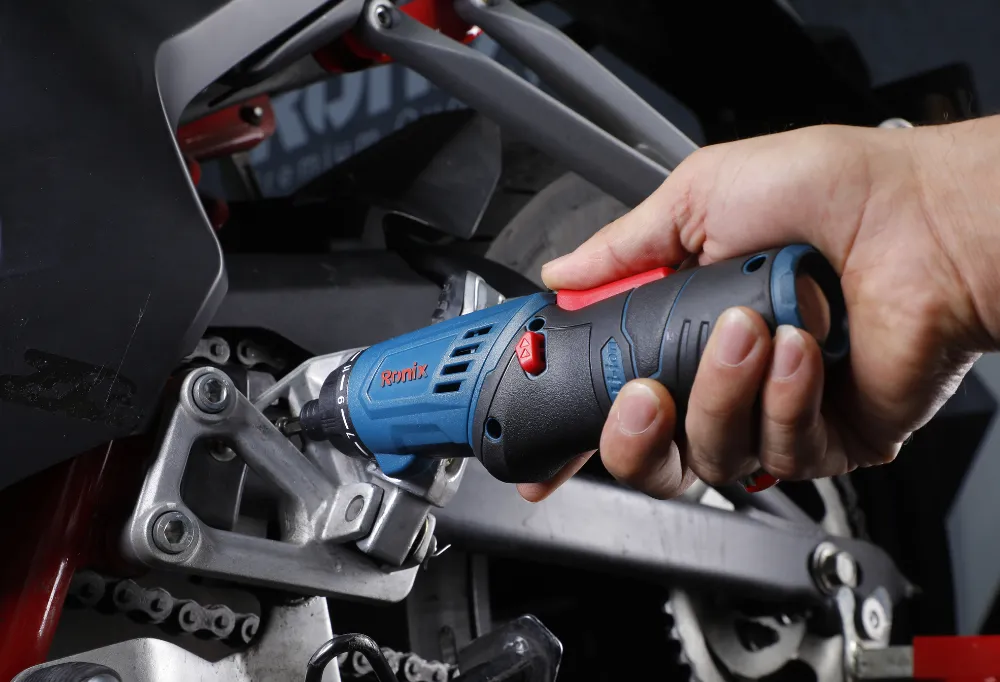
Portability and Accessibility:
Equipped with smaller motors, electric screwdrivers are lightweight and easy to transport. Whether secured on a tool belt or stowed in a spacious pocket, these compact tools offer convenience without sacrificing functionality. This makes them an ideal choice for professionals who need quick and easy access to their tools on the go.
User-Friendly for Special Conditions:
Cordless screwdrivers excel in user-friendliness, particularly for individuals with limited grip strength, arthritis, or medical conditions that hold them back from manual screwdriver use. The ergonomic design and reduced weight, compared to cordless drills, make them comfortable and accessible for those who prefer a lighter tool without compromising efficiency.
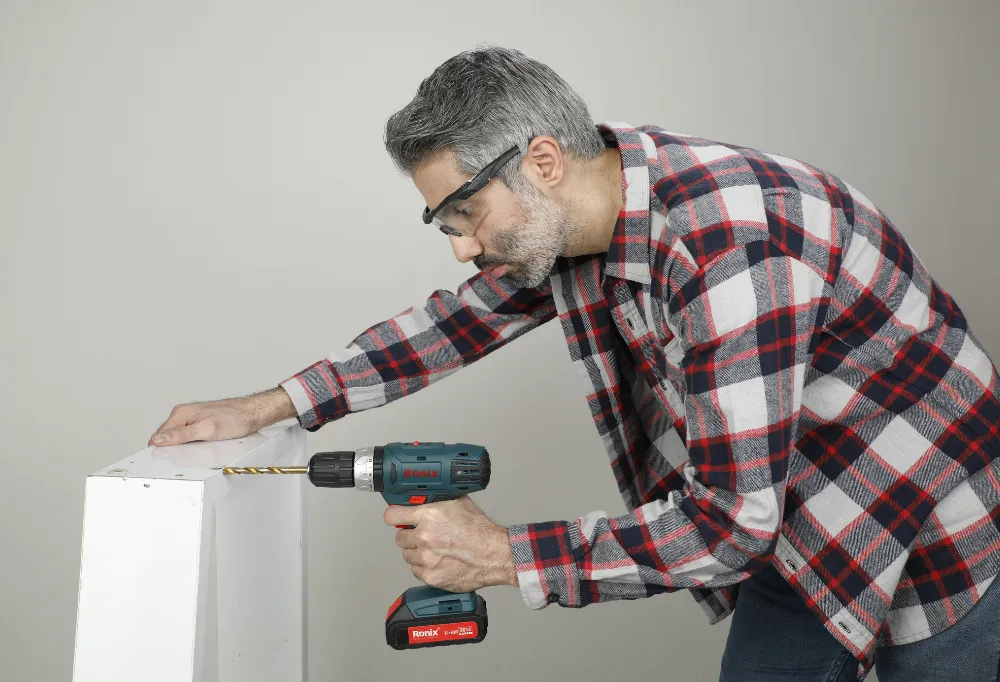
Related Articles: Best Corded Drills for Woodworking
Cordless Drill Benefits vs. Screwdrivers:
Cordless drills, with their significantly more powerful motors, show higher adaptability and are capable of handling a wide range of screw-driving activities, even those involving tough wood, metals, or concrete. Their versatility extends beyond mere screw driving, as cordless drills can create holes for screws in any material.
Multi-Purpose Functionality:
Cordless drills go beyond traditional drilling and screwdriving tasks. With the right accessories, they can tackle polishing, sanding, paint stirring, and even drain cleaning, showcasing their versatility across various applications.

Efficient Screw Removal:
The tough design of cordless drills makes them adept at removing worn, corroded, or compromised screws, a valuable feature in renovation projects where dealing with stubborn screws is common. This added strength makes the cordless drill a reliable and powerful tool for demanding jobs.
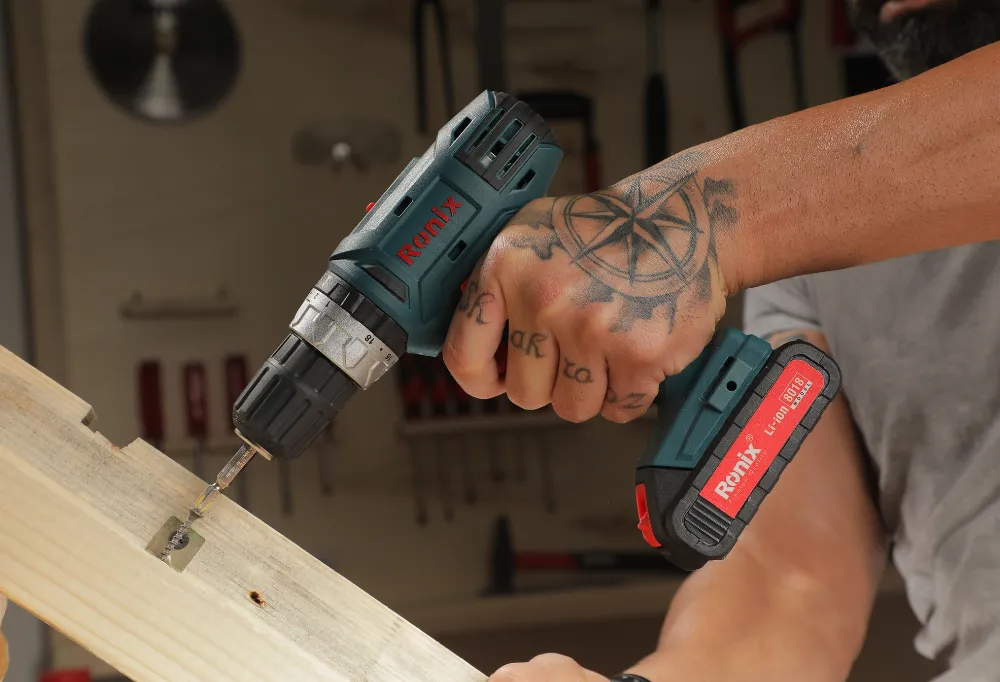
Battery Life Comparison: Cordless Screwdriver vs Drills
Before exploring the specifics of battery life for Cordless Screwdrivers and Drills, it’s essential to note that both typically use Lithium-ion batteries. These batteries, appreciated for their small size and rechargeability, provide enhanced power output.
Voltage and Amp-Hour Considerations:
When selecting a cordless tool, paying attention to voltage and amp-hour (AH) ratings is crucial. Voltage shows the power delivery capacity of the battery, while the amp-hour rating reflects the duration the battery can hold a charge during operation. Higher amp-hour ratings prove beneficial for more demanding tasks, allowing for extended usage before recharging.
For instance, comparing two drills with the same 12v battery but differing AH ratings (1.3AH and 3AH), the 3AH variant offers more operational time before requiring a recharge.
Battery Location and Charging Methods:
In the Cordless Screwdriver vs Drills battery comparison, it’s vital to consider the location and charging mechanism. Cordless screwdrivers often have built-in batteries, requiring the entire tool to be plugged in for charging, causing project interruptions. On the other hand, higher-voltage screwdrivers and most cordless drills feature interchangeable batteries. This enables easy battery replacement, eliminating downtime when a battery runs out.
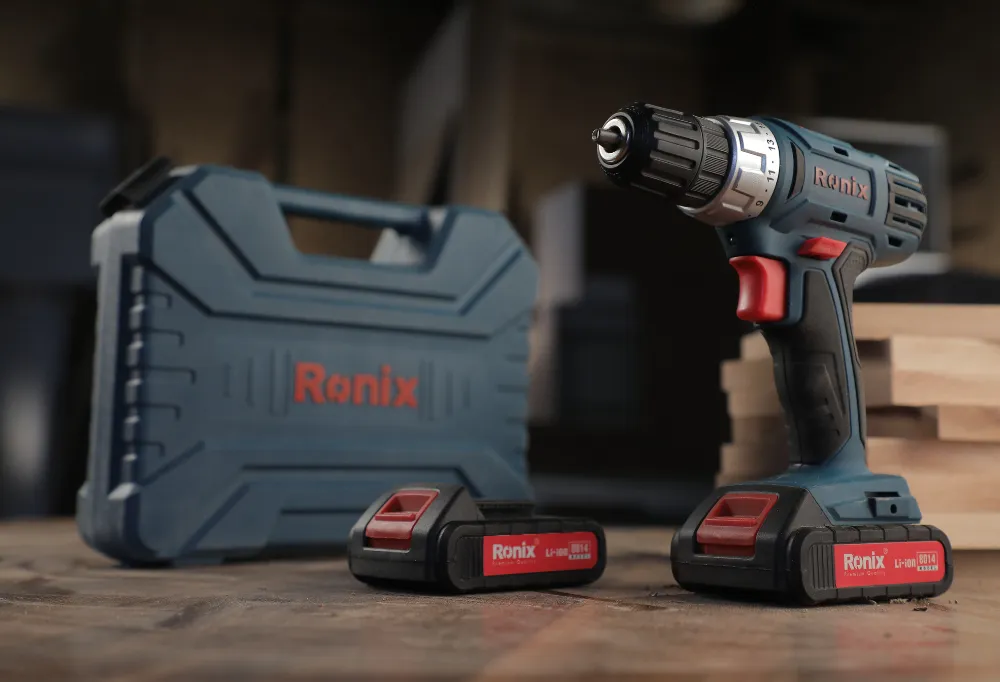
Tips for Uninterrupted Operations:
For critical tasks, it’s advisable to keep an extra battery handy for any tool you anticipate using extensively. This safety measure guarantees continuous workflow, preventing frustration caused by a dead battery with only a couple of screws left. Additionally, some electric screwdriver variants operate on standard AA batteries, eliminating the need for charging and providing an alternative power source for convenience.
Screw Guns: The New Contenders
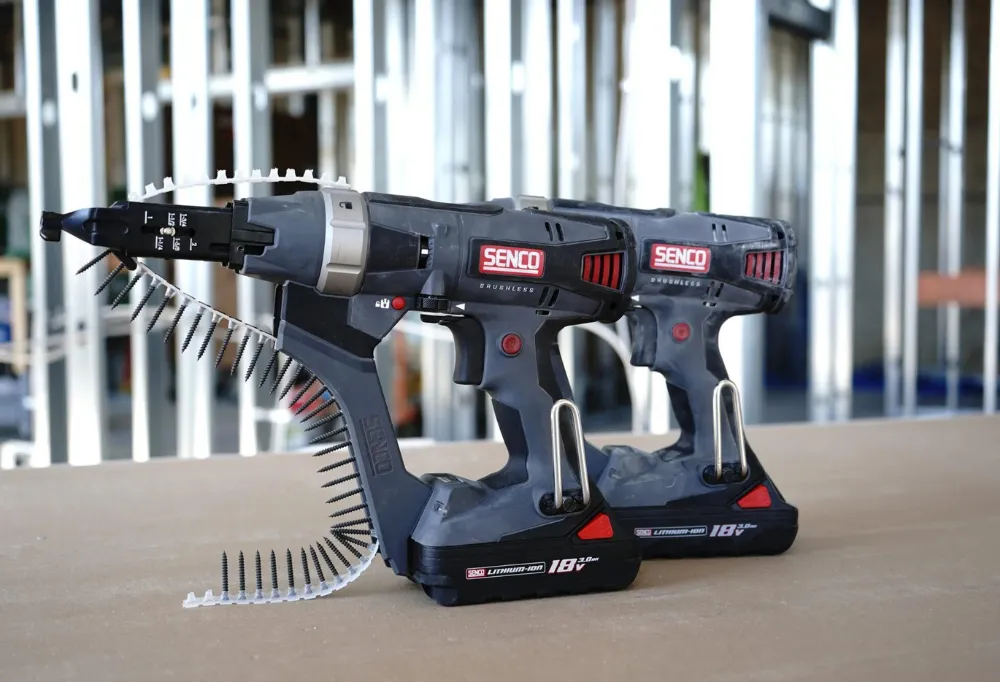
Screw guns are the latest contenders in power tools, designed for swift and precise screw driving. Resembling cordless drills but optimized for high-speed screw applications, these tools have adjustable depth settings and a strong force for demanding projects like drywall installation. Their rapid-fire mechanism ensures continuous driving without constant repositioning, saving time and reducing user fatigue. Screw guns are your reliable ally for efficient, high-volume screw driving tasks.
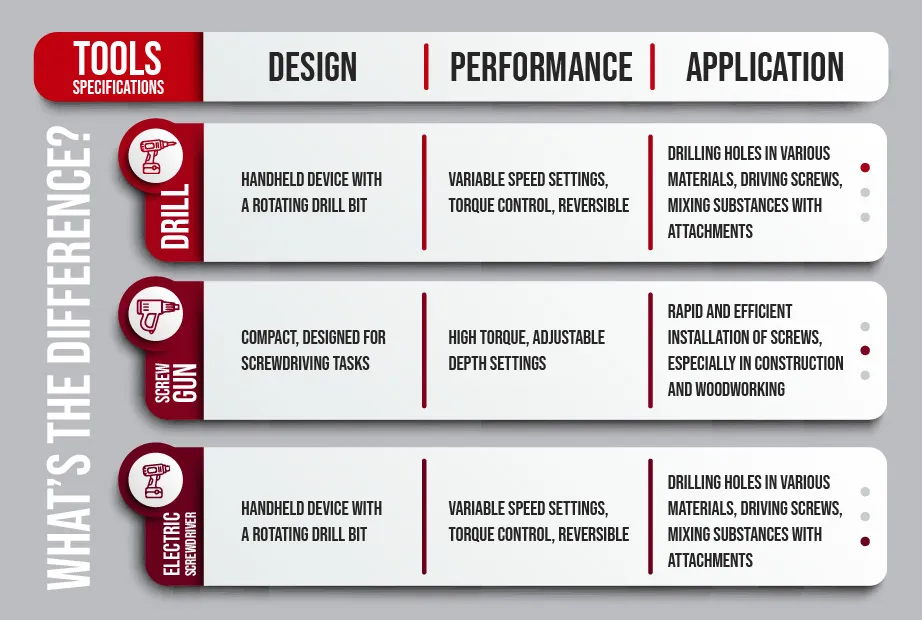
Screw Gun Vs Drill
A screw gun, with its impressive speed and efficiency, takes the spotlight when you’re looking to swiftly navigate through a multitude of screws. Think hanging drywall or framing—those heavy-duty tasks where the screw count is on another level. Now, enter the drill, your versatile companion. It’s not just about drilling holes; it’s a sophisticated multitasker, seamlessly handling screws with finesse. Need flexibility across a spectrum of jobs?
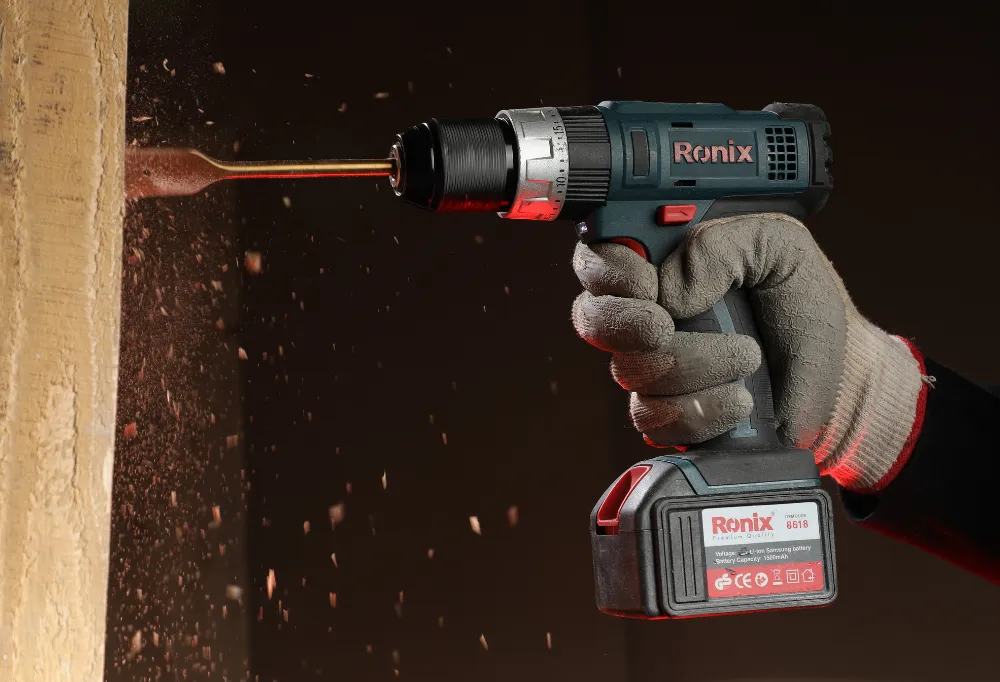
The drill steps up. So, whether you find yourself in a high-speed screw frenzy or gracefully transitioning between drilling and screwing, choose your tool based on the nuances of your project.
Screw Gun Vs Electric Screw Driver
Alright, let’s break down screw guns versus electric screwdrivers! So, here’s the deal: a screw gun is your turbocharged tool, perfect for those heavy-duty gigs like drywall or framing where speed is the name of the game. On the flip side, an electric screwdriver is your precision pal, tackling smaller-scale tasks with finesse, like putting together furniture or tightening screws.
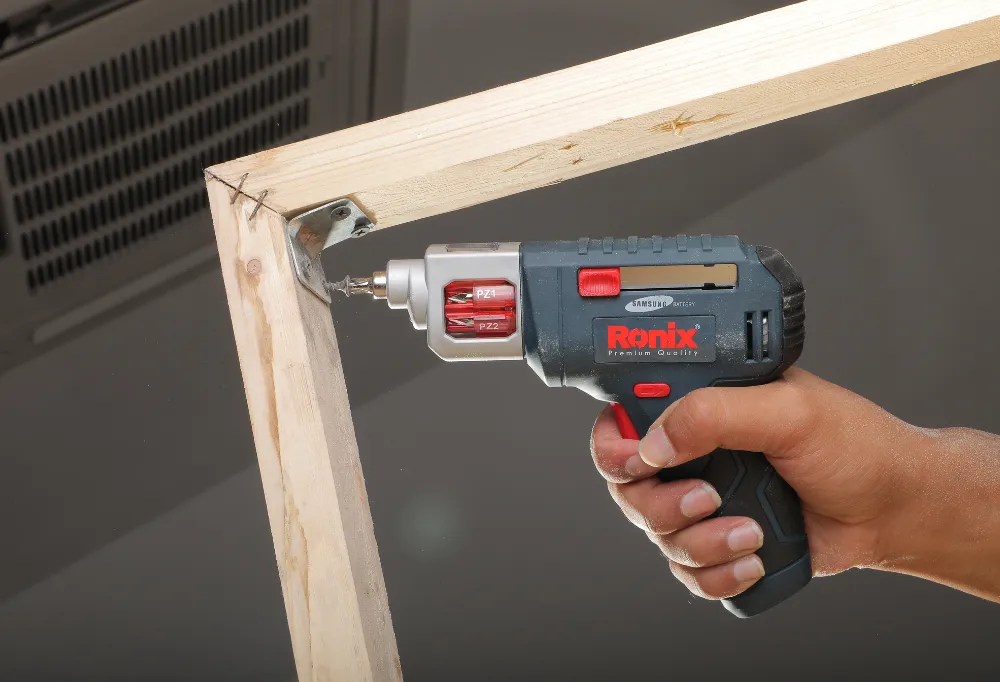
The choice? Think about the vibe of your project: Need the big guns for a high-speed screw task? Go with the screw gun. Need surgical precision for a sensitive task? The electric screwdriver’s got your back. It’s all about picking the tool that dances best with your project’s rhythm.
Ronix 8536 Cordless Screwdriver: The Most Efficient Cordless Screwdriver of 2024
The Ronix 8536 Cordless Screwdriver is a powerhouse for frequent screwing with a strong emphasis on safety. Featuring a fast-charging SAMSUNG lithium battery (1.5Ah) and a lifelong battery commitment, it ensures top-notch quality. The 6+1 clutch setting guarantees precision, making screwing comfortable and accurate.
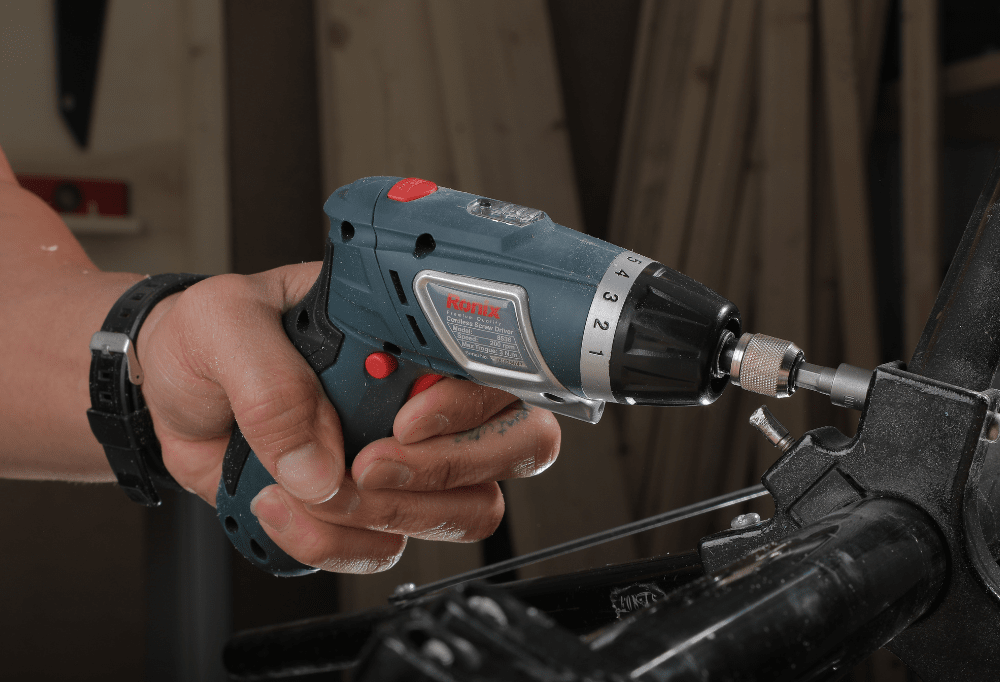
With its lightweight build and dual-angle handle, this tool excels even in tight spaces, delivering efficiency without fatigue. The Ronix 8536 stands as the epitome of power, precision, and portability, making it an exceptional choice for various tasks.
Conclusion 🧾
In summary, we explored the differences between cordless screwdrivers and drills, delving into the existence of versatile “drill drivers” that combine both functions. While convenient, these combo tools may sacrifice some power compared to standalone models.
FAQ of Cordless Screwdriver vs Drill
Is it possible to get a cordless drill and a cordless screwdriver in one package?
Yes, these are most commonly named “drill drivers” and will be able to complete both tasks. However, with some, you might find that they are less powerful than some standalone models.
What is the difference in weight between a cordless screwdriver vs drill ?
Cordless drills are significantly heavier than screwdrivers. The majority of electric screwdrivers weigh less than a pound, however cordless drills can weigh 6 pounds or more!
When Should You Use A Screwdriver?
When attempting to remedy minor difficulties such as anchoring a cabinet door in its frame, removing it, or pinning a picture on the wall, or other little house repairs.

Ronix
17 November 2021
